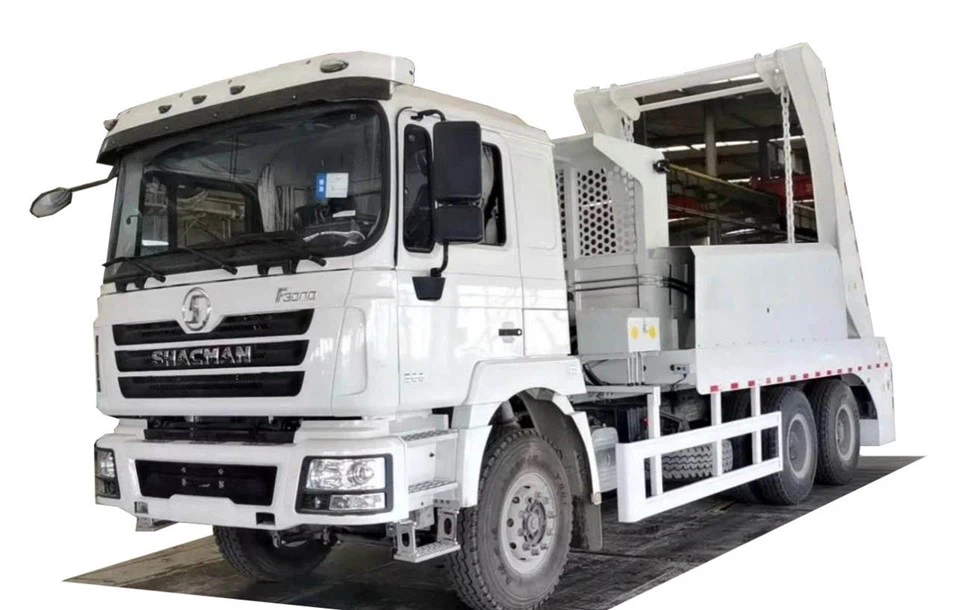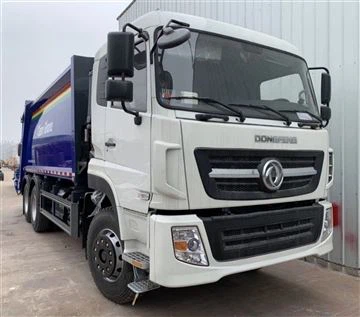Ultimate Guide to Waste Compactor Trailers: Efficiency, Benefits, and Best Practices

In the world of waste management, efficiency and sustainability are paramount. Waste compactor trailers are revolutionizing how industries and municipalities handle waste, providing a practical solution for compacting and transporting refuse. This article will delve into the intricacies of waste compactor trailers, exploring their features, benefits, types, and best practices for usage.
Understanding Waste Compactor Trailers
What is a Waste Compactor Trailer?

A waste compactor trailer is a specialized vehicle equipped with a built-in compactor designed to compress waste material into a smaller volume. This enables more effective transport and disposal of waste, thereby reducing operational costs and environmental impact.
How Do Waste Compactor Trailers Work?
These trailers utilize hydraulic compression to crush waste materials, significantly reducing their space requirements. The compacted waste is then stored in a designated area of the trailer, allowing for more efficient collection and transportation. When the trailer is full, it can be transported to a landfill or recycling facility.
Types of Waste Compactor Trailers
1. Stationary Compactor Trailers
Stationary compactor trailers are designed to remain in a fixed location, typically used in industrial settings or large waste collection sites. They are often connected to chutes or bins for easy waste feeding.
2. Portable Compactor Trailers
Portable compactor trailers are mobile and can be towed to various job sites. These are ideal for construction sites, events, and locations with varying waste generation needs.
3. Self-Contained Compactor Trailers
These trailers feature an integrated compaction system and are often used in commercial and industrial applications where large volumes of waste are generated. They are beneficial for handling liquid and hazardous waste.
Key Features of Waste Compactor Trailers
1. Hydraulic Compaction System
The hydraulic system allows for powerful compression of waste materials, ensuring maximum space efficiency within the trailer.
2. Durable Construction
Constructed with heavy-duty materials, waste compactor trailers are built to withstand the rigors of waste transport and are designed to have a long service life.
3. Easy Loading Mechanisms
They often come equipped with various loading mechanisms, such as rear doors, side openings, or integrated chutes to facilitate easy waste deposition.
Benefits of Using Waste Compactor Trailers
1. Space Optimization
By reducing the volume of waste, compactor trailers allow for more efficient use of space in dumps and landfills, which can lead to significant cost savings.
2. Environmental Advantages
Compact waste reduces the number of trips required for disposal, thereby cutting down on fuel consumption and greenhouse gas emissions.
3. Cost Efficiency
The ability to carry more waste in each trip decreases operational costs related to fuel, labor, and landfill fees.
4. Enhanced Safety
With a compacted trailer, there’s a lower risk of accidents associated with waste spillage and reduced exposure to hazardous materials for waste handlers.
5. Versatile Applications
These trailers can handle a variety of materials, from general waste to recyclables, construction debris, and even liquid waste, making them suitable for numerous industries.
Practical Examples of Waste Compactor Trailer Usage
1. Construction Sites
Construction sites generate significant waste, including debris and packaging materials. Using waste compactor trailers helps manage these materials efficiently, enabling quicker clean-ups and reducing transport costs.
2. Municipal Waste Management
Municipalities often use waste compactor trailers for community clean-up events, allowing for effective collection and transport of waste from public spaces.
3. Retail and Shopping Centers
High-traffic retail environments can benefit from waste compactor trailers to manage waste generated from packing materials, deliveries, and customer refuse. This not only saves space but also keeps the environment clean.
Best Practices for Using Waste Compactor Trailers
1. Regular Maintenance
Maintaining the hydraulic system and structure of the trailer is crucial. Regular inspections can prevent breakdowns and extend the lifespan of the trailer.
2. Proper Loading Techniques
Ensure waste is loaded evenly to prevent imbalances. Use appropriate loading equipment and follow safety procedures to minimize risks during waste handling.
3. Educate Personnel
Training staff on proper waste segregation and compacting techniques plays a vital role in maximizing the efficiency of waste compactor trailers.
4. Follow Local Regulations
Ensure compliance with local waste management regulations, especially when transporting hazardous materials. Adhering to guidelines not only promotes safety but also avoids legal issues.
Comparative Analysis of Waste Compactor Trailers
| Feature | Stationary Compactor Trailers | Portable Compactor Trailers | Self-Contained Compactor Trailers |
|---|---|---|---|
| Mobility | No | Yes | No |
| Best Use | Industrial | Construction, Events | Commercial Applications |
| Waste Type | Solid Waste | Solid Waste and Debris | Liquid and Hazardous Waste |
| Capacity | High | Medium | High |
Frequently Asked Questions (FAQs)

What is the average cost of a waste compactor trailer?
The cost of waste compactor trailers varies significantly based on size, type, and manufacturer, typically ranging from $10,000 to $50,000.
How often should waste compactor trailers be emptied?
Emptying frequency depends on waste generation rates, but in general, trailers should be emptied once they are about 75% full to ensure optimal performance.
Can waste compactor trailers handle organic waste?
Yes, waste compactor trailers can be designed to handle organic waste, although specific features may be needed to manage decomposition and odors.

Are there special permits needed for using waste compactor trailers?
This varies by location and type of waste. It’s best to check with local waste management authorities for specific requirements.
What maintenance is required for waste compactor trailers?
Regular maintenance includes checking hydraulic fluid levels, inspecting the compaction mechanism, and ensuring that tires and brakes are in good condition.
Can I use a waste compactor trailer for recycling?
Yes, compactor trailers can be used for recycling as long as appropriate sorting and segregation practices are followed. Using dedicated trailers for recyclable materials is recommended.
